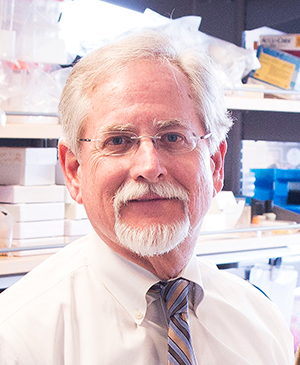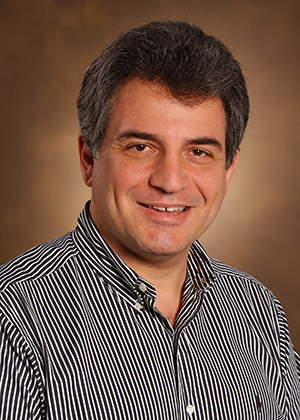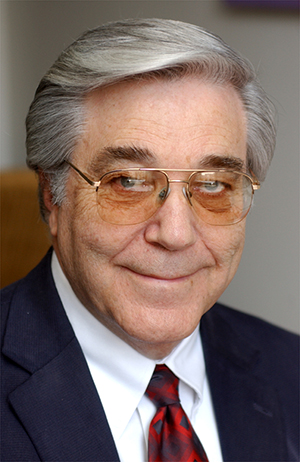Uncategorized
-

Osheroff honored with Association of Biochemistry Educators Distinguished Service Award
Kudos to Neil Osheroff, who was honored by the Association of Biochemistry Educators with their 2017 Distinguished Service Award! This award represents appreciation for an individual who has demonstrated either a profound, sustained, or leadership contribution to improving the postdoctoral experience. The award is presented in alternating years to either an… Read MoreJun. 27, 2017
-

Masakazu Shiota Receives 2017 Discovery Grants Projects Award
Masakazu Shiota (Molecular Physiology & Biophysics), is one of 13 recipients of funding from Vanderbilt's 2017 Discovery Grants program for "Development and Validation of Dual Recombination System in Mice." Read more… Read MoreJun. 23, 2017
-

VU scientists report a way to calm the sepsis “storm”
Researchers at Vanderbilt University Medical Center (VUMC) have found a way to calm the “genomic storm” that triggers the often-lethal consequences of sepsis. Sepsis, an exaggerated and overwhelming inflammatory response to various infections, is a leading cause of death in the United States and around the world. Using a cell-penetrating peptide they… Read MoreJun. 22, 2017
-

Team’s discovery could lead to new diabetes treatment
High circulating glucose, the hallmark of diabetes, is linked to the disease’s most serious complications including heart disease, kidney failure, blindness and amputation. Diabetes is the sixth leading cause of death and costs the nation an estimated $322 billion a year. Restoring the action of insulin has been the traditional treatment… Read MoreJun. 15, 2017
-

Pharmacology top teacher
Ronald Emeson was presented with the Teacher of the Year Award at last week’s 26th annual Joel G. Hardman Student-Invited Pharmacology Forum. Emeson is now a three-time winner of the award. He previously received it in 2003 and in 1995, the first year it was awarded. Read MoreJun. 14, 2017
-

Coming of Age for Imaging Mass Spec
Vanderbilt Basic Sciences Prof. Richard Caprioli (Department of Biochemistry) is featured in the cover story of the American Chemical Society’s primary trade magazine, Chemical and Engineering News. The article outlines how imaging mass spectrometry (IMS), pioneered in the Caprioli laboratory, has now been broadly adopted by the pharmaceutical industry. IMS enables… Read MoreJun. 8, 2017
-

Richmond to speak at national VA research conference on cancer immunotherapy
Vanderbilt University cancer researcher Ann Richmond, Ph.D., 2016 recipient of one of the highest honors for scientific achievement bestowed by the U.S. Department of Veterans Affairs, will be a keynote speaker during a national VA research conference next week at Vanderbilt University School of Medicine. “Cancer Immunotherapy: Advances and Challenges” is the… Read MoreMay. 18, 2017
-

Hudson to receive Protein Society’s Brändén Award
Vanderbilt University biochemist Billy Hudson, Ph.D., has been awarded the 2017 Carl Brändén Award by The Protein Society for exceptional contributions to science, education and service. The award, named for the late Swedish biologist Carl Brändén, a pioneer in protein crystallography, will be presented during the society’s 31st Annual Symposium July… Read MoreApr. 27, 2017
-

Key Signaling Protein Structure Reveals Clues to Alzheimer’s disease therapy
The protein gamma-secretase appeared to be a promising target for drugs to treat Alzheimer’s disease. It “cuts” the amyloid precursor protein to release amyloid-beta — a protein fragment that clumps together and forms neuron-killing plaques. “Amyloid-beta is thought to ‘seed’ Alzheimer’s disease, so lowering its production has been a goal to… Read MoreApr. 27, 2017
-

Polarity protein role in cell survival
Cell survival is dependent upon regulation of numerous proteins, both cytosolic and membrane bound. Reporting in Nature Communications, Mukhtar Ahmed, Ph.D., and Ian Macara, Ph.D., identified an unexpected link between cell survival and the polarized delivery of proteins to the surface of mammary epithelial cells. Read MoreApr. 27, 2017